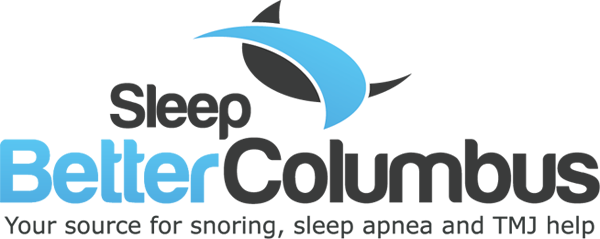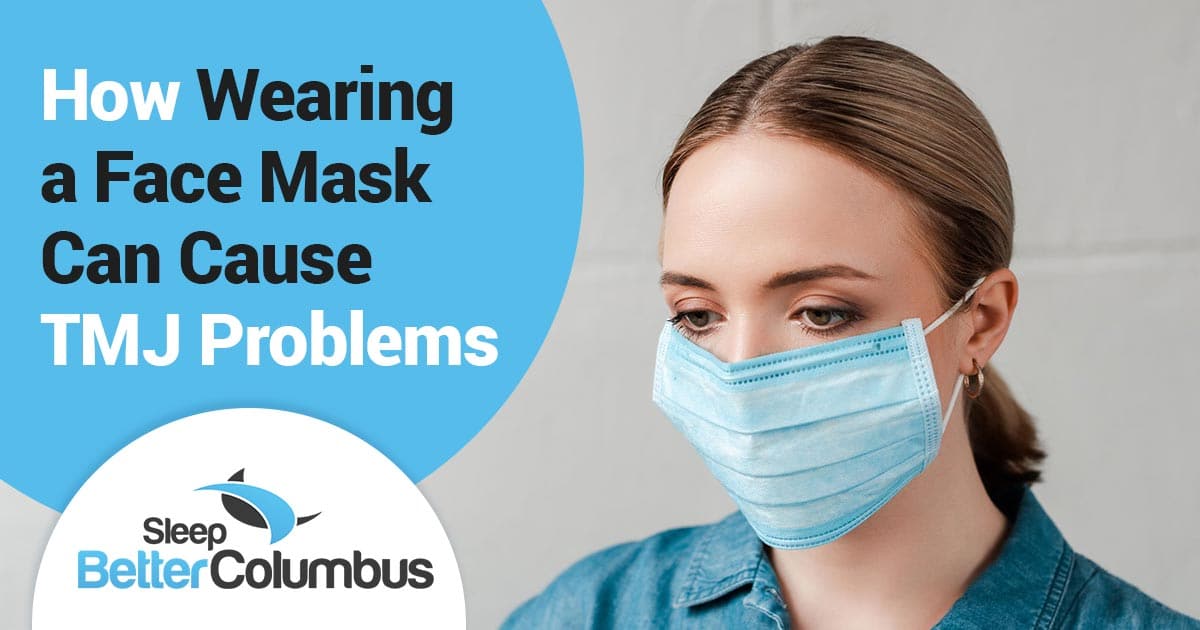Face mask-wearing has become the norm these days due to the COVID-19 pandemic. The CDC has recommended wearing face masks to stop the spread of the coronavirus through particles released in the air. In many areas, wearing a face mask is mandatory in public.
While dentists and surgeons have been used to wearing surgical masks as part of their job for years, it’s an entirely new concept for most of the general public. Many people have had to get used to wearing masks, or in many cases, are still getting used to it.
As we wear face coverings to protect us from coronavirus, some people have begun experiencing headaches and jaw pain associated with TMJ. We’re going to take a look at these pains as well as what you can do to relieve them while still wearing your mask to prevent infection.
Headaches from Wearing Face Masks
Face mask-wearing has led many people to change the way they breathe. This may mean holding their mouths open and taking shallow breaths. Holding your mouth open when wearing a mash can cause muscle imbalances in the neck and jaw. These types of imbalances can cause headaches.
When you’re wearing a face mask all the time, you may not be drinking as much water as you used to. This can leave you dehydrated. Dehydration can lead to headaches and fatigue. One easy way to eliminate this problem is to set a timer for yourself to drink water. This will help to keep you hydrated while giving you a quick mask break throughout the day.
Jaw Pain From Wearing Face Masks
You may not even realize it, but you may be pressing your lips together or clenching your teeth under your mask. When the jaw and facial muscles are in this contracted position for a long time, they can get overworked, just like any other muscle in your body. When this happens, lactic acid builds up and irritates nerve fibers, causing pain.
Other factors that can contribute to TMJ pain while face mask-wearing come from tugging down on your ears or wearing a face mask with tight bands. When you do this, you draw your ears down and forward toward your jaw. This creates compression on the disc of your jaw.
If you are experiencing jaw pain from wearing a mask, you may want to consider the type of mask you’re wearing. There are cloth masks, surgical masks, and N95 masks. N95 masks can give a tight fit and when you combine that with a tugging on your chin, it can lead to more compression of the jaw and jaw pain. If you find this happening, you may want to try out different types of masks that will still give you protection from COVID-19, but with more comfort for your face.
What Can You Do to Relieve Pain from Face Mask-Wearing?
Since face mask-wearing is not something you can ignore, you have to find ways to decrease pain while remaining safe. Here are some ideas:
1. Be aware of your jaw when wearing a face mask
When you have your mask on, try not to make your jaw tense or push it forward to keep your mask on. The elastics are on your mask are supposed to keep your mask in place. If you find this is not happening, it may be time to look for a better fitting mask. When you wear your mask, your jaw should be relaxed when it’s resting, your teeth shouldn’t be touching, and your lips should be lightly together. Keeping these things in mind should reduce jaw pain when wearing a face mask.
2. Be aware of ear loops and look for alternatives.
Earloops can pull and tug on your ears, leading to headaches and jaw pain. When your mask’s ear loops are constantly tugging, the trigeminal nerve is triggered. This can lead to pain and tension in your jaw.
If you feel this pain, you may want to try ear savers. These fit around your head, eliminated ear loops and the pulling they cause. If you’re crafty, you can try to make one yourself. If not, there are plenty that are already made and available online.
3. Be aware of your breathing pattern.
Face mask-wearing might prompt us to breathe through our mouths instead of our noses. When we breathe through our mouth, our jaw is held open slightly, leading to tension around the jaw. Try to still breathe through your nose when you’re wearing a face covering. When you breathe through your nose, it allows the jaw to stay in a better resting position.
4. Keep your neck muscles loose.
When you wear a mask, it can change your normal head position. This can hurt your neck muscles and lead to jaw aches. If you can try to keep your neck muscles loose, you can eliminate the strain and keep TMJ symptoms at bay.
5. Ensure masks fit properly.
Your mask should fit snug across the nose and not slip up toward the eyes. This will prevent you from clenching or protruding your jaw. Ear savers can also help keep your mask in place and reduce tension on the jaw.
It’s important to find a face mask that fits properly and doesn’t cause unnecessary problems. In the end, proper face mask-wearing should not only protect you from the coronavirus but also be comfortable and not lead to TMJ pain.
Resources for TMJ Pain
https://www.msn.com/en-sg/health/medical/9-side-effects-of-wearing-face-masks/ss-BB13ZHW7#image=11




